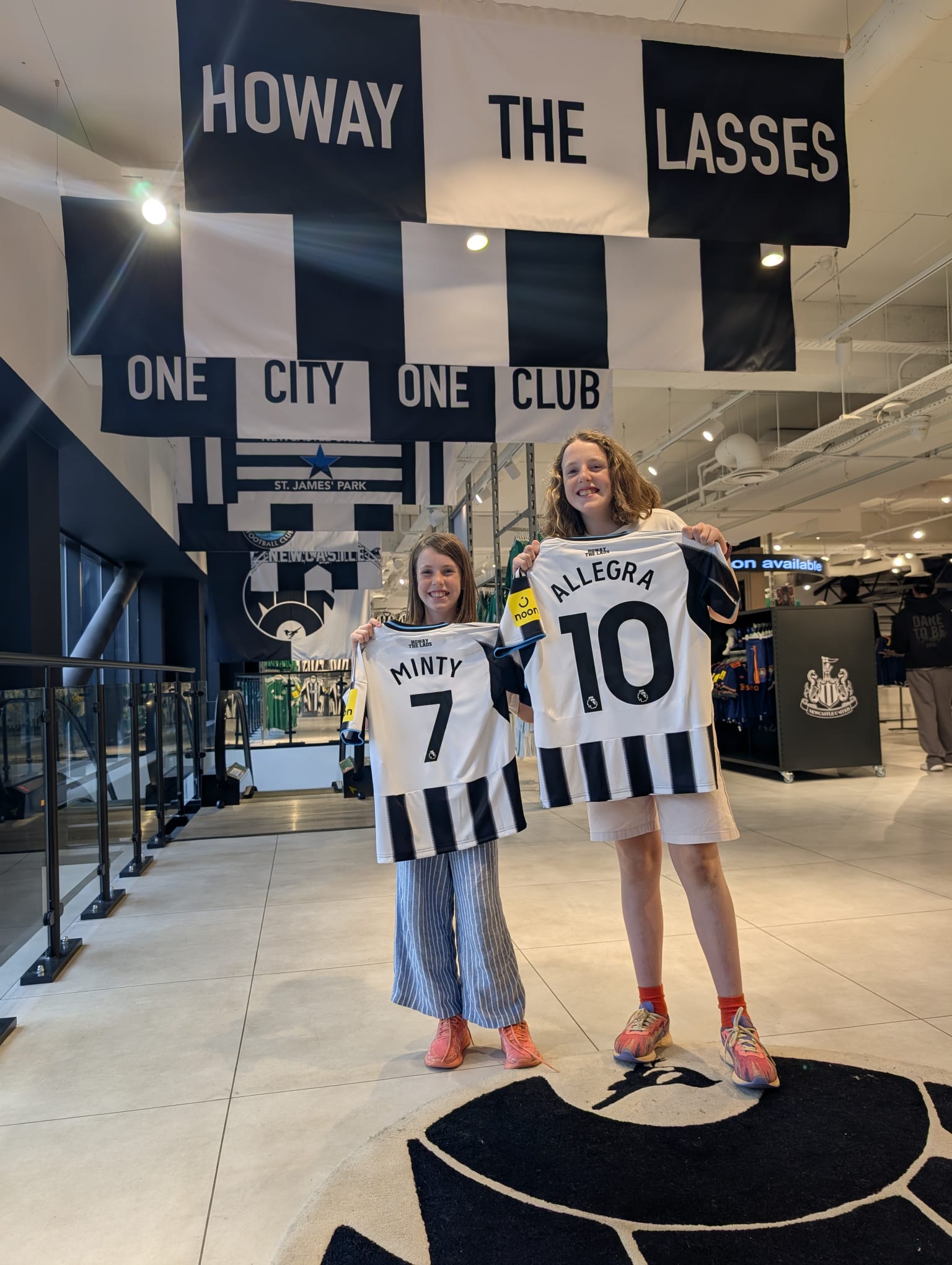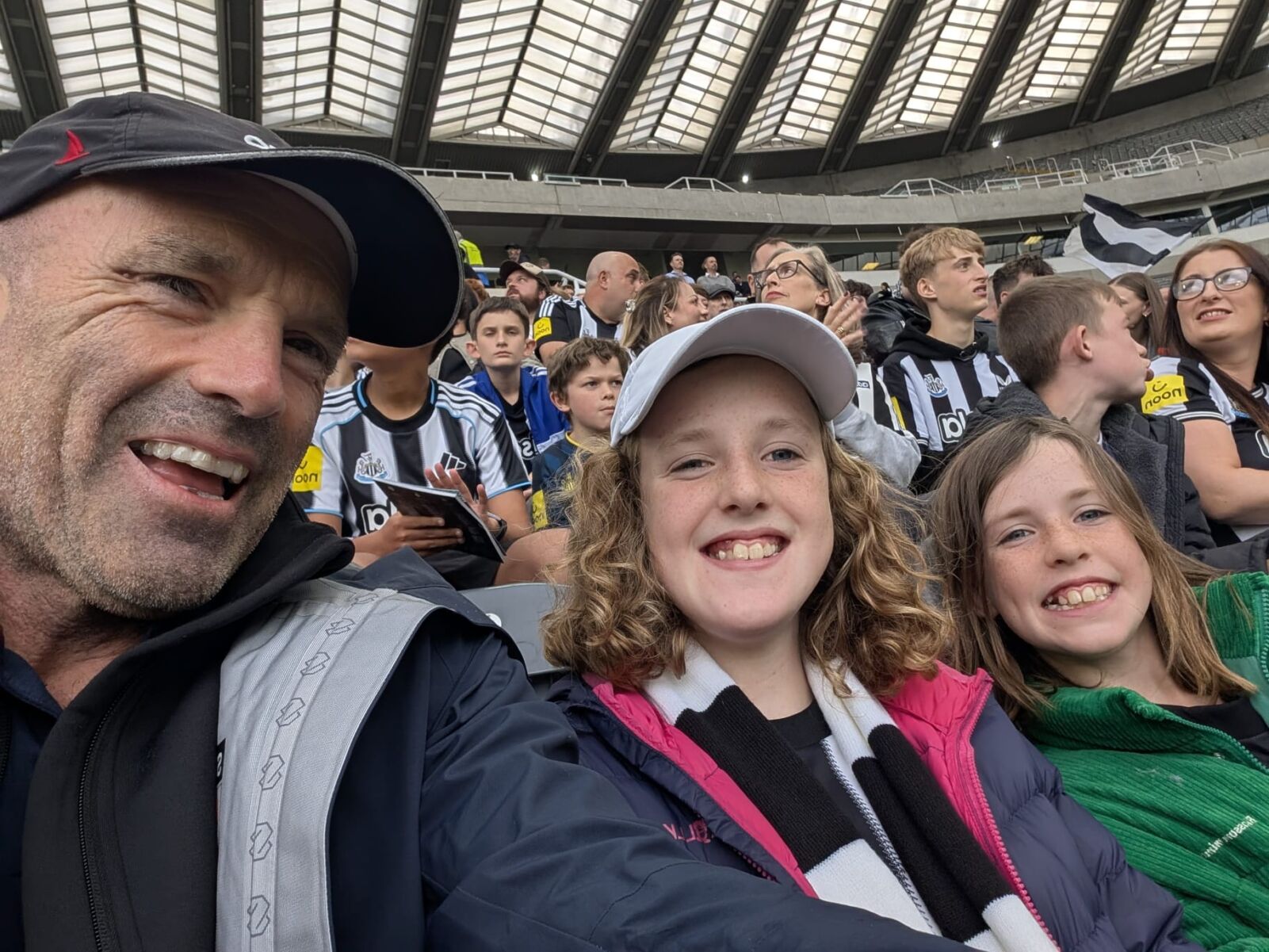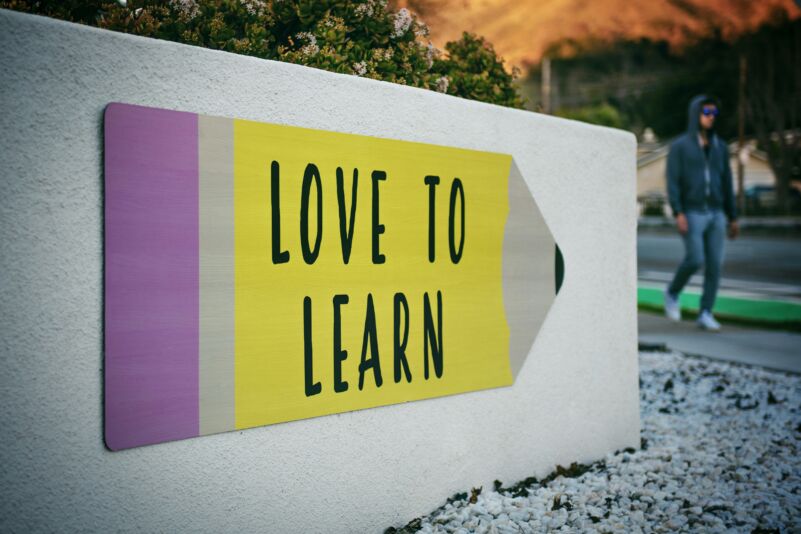Quick Summary
Walking my kids through the streets that shaped me, I realised: where you’re from matters—but what you do with it matters more. That’s why I bet on education, always.
Takeaways
- Format isn’t the problem, access is.
- Education isn’t just important, it’s generational infrastructure.
- Founders are often neurodivergent, and that’s both a gift and a trap.
- Good jobs aren’t a perk, they’re a social force.
I took my kids back to Newcastle recently. It’s where I was born, but they’ve only ever known life in leafy Salisbury and I wanted to show them where Dad was raised. Saw my mam. Bought black-and-white shirts. Watched a pre-season friendly at St James’ Park (we lost, obviously – important to manage expectations from the off). Then I did the classic dad tour: “that’s where your granny lived”, “that’s where I went to school”, “that’s where I grew up,” “I smashed that window with a football once.” Nothing dramatic. Just ordinary streets that shaped me – and still shape what I care about in business: education, work worth doing, and building companies that make life a bit better.


There’s something about walking those streets with your own children that makes you see things differently. The terraced houses, the corner shops, the playing fields where I spent hours kicking a ball against a wall – they’re not just memories anymore. They’re foundations. Every conversation I have with a founder about culture, every argument I make about creating great jobs, every time I push back against the idea that “business is just business” – it all tracks back to those streets. Newcastle didn’t make me, but it gave me the raw materials to make myself.
Dyslexia and me (and why school never quite fit)
I was in the top set for everything. Came first out of 250 in the high-school entrance exam. On paper, a model student. In reality, I hated rote learning. Dyslexia made writing feel like wading through concrete. I once misspelt “government” four different ways in one sentence. It wasn’t that I couldn’t think; I just couldn’t get the thinking down in the way school wanted.
The frustration was constant. Teachers would look at my exam results and assume I was lazy when assignments came back messy and misspelt – after all, the content was good, so I clearly just couldn’t be bothered to check my spelling. The disconnect between what was in my head and what ended up on paper felt like a cruel joke. I’d understand concepts faster than most of my classmates but struggle to show it in the format that mattered. It taught me early that systems aren’t neutral – they favour certain types of minds and inadvertently exclude others. That lesson has stuck with me through every business I’ve built.
Primary school hadn’t exactly been a gentle experience either. Short trousers, a metre-long wooden ruler, and a teacher who’d bring it down across the backs of your legs if you stepped out of line. Different times. But it left a mark: school can build confidence or crush it, sometimes both on the same day.
Reading as an escape hatch (and why audiobooks saved us)
My dyslexia makes it really hard for me to write and spell. However, it comes with a twist – I can read just fine, and I read a lot. Books cracked the world open for me. My son Harry didn’t get that break. His dyslexia means he can’t read, full stop. So I became an early adopter of audiobooks. Every car trip turned into “car-school”: history, business, fantasy, biographies – hours and hours, week after week. It gave him a voice and a vocabulary.
The transformation in Harry was remarkable. Within months of discovering audiobooks, his vocabulary exploded. He’d drop words into conversation that I hadn’t taught him, concepts he’d absorbed from stories and history programmes. His confidence grew too. No longer was he the kid who couldn’t keep up with reading groups; he was the one with the most interesting stories to share. Watching that shift happen – from frustration to fascination – reinforced something I’d always believed but now felt in my bones: intelligence isn’t about the format, it’s about the access.
Audiobooks weren’t a “hack”; they were a lifeline. If print lets you in, brilliant. If it doesn’t, audio levels the field. That’s not dumbing down – that’s removing friction so curiosity can do its job. I’ve seen it first-hand in my own family. When you make a different path possible, kids sprint down it.
For my two young girls, Allegra and Minty (who I was dragging round Newcastle) we have an “unlimited” budget at Waterstones on any shopping trip. Minty has listened to the Famous Five so many times I’m half expecting Enid Blyton to send a cease-and-desist. We’ve even got a Spotify account set up just so she can rinse audiobooks to her heart’s content.
Why I’m so stubborn about education
I was the first in my family to go to university. Not because I was special, but because education plus graft cracked open possibilities that weren’t there for my parents or grandparents. And I’ve seen the reverse too – people with all the right attitude who didn’t get the breaks. That sticks with you.
My granny’s story brings it home. She was born in India in the early 1900s – Scottish tea planter father, Nepalese housemaid mother – and placed in Dr Graham’s Homes, an orphanage in Kalimpong, at ten weeks old. At twelve, she was adopted by the judge of Darjeeling. Without that twist of fate, I wouldn’t be writing this.
For that very reason – fate plucking me from one future and giving me a shot at another – I still support that school now. The first lad I backed just graduated from Calcutta University. One child who might have ended up on the streets is now a graduate, with the opportunity to change his own family’s trajectory. That’s what education does.

The arithmetic of opportunity is brutal and beautiful in equal measure. My gran’s story could have gone a dozen different ways. Most of them would have led to poverty, limited choices, a narrower life. Instead, that one intervention – a school that caught her, a judge who saw potential – rippled forward through generations. It’s why I get impatient with people who treat education as a nice-to-have rather than the foundation everything else is built on. Without it, talent goes to waste. With it, ordinary people do extraordinary things.
If you want a neat line that explains a lot of my choices, it’s this: beyond profit, I care about what education unlocks – dignity, options, the chance to choose your own challenges.
Business can make life lighter – or heavier
After an MBA I had a tidy plan: become a managing director. I wasn’t entirely sure what that meant until I got there. What I quickly learned was simple: when you get to sit in the big seat, you can create shit jobs, or you can create great jobs. Great jobs send people home on a Friday with energy. They don’t kick the dog, snap at the kids, or carry misery into Monday. They carry joy into their communities. That’s what great service feels like, and in the real world that’s what Net Promoter Score is actually measuring – humans doing work they’re proud of.
I’ve spent my career trying to build those kinds of companies, and helping founders do the same. Not because it looks good on a slide, but because I know what brittle cultures do to people – and what strong, fair, adult-to-adult cultures unlock instead.
The ripple effect is real. When people feel valued at work, they show up differently everywhere else. They’re better partners, better parents, better neighbours. They invest in their communities rather than just surviving them. It’s not abstract – it’s measurable. Companies with engaged workforces see it in retention, productivity, customer satisfaction, even in the local economy around their offices. Good jobs create good lives, and good lives create stronger communities.
A word about neurodiversity and founders
Founders are rarely “average”. I’d put money on almost every founder I’ve worked with carrying a dose of dyslexia, ADHD, or both – diagnosed or not. The same traits that got you detentions at school are superpowers in business: pattern-spotting, appetite for risk, and the ability to hyper-focus on what matters. But here’s the flip side: those traits turn you into the bottleneck as you grow. Most companies hit sticky transition points – 30 people, 100 people, 150 – and everything that made you brilliant starts to strangle your own business. That’s the sober truth of scaling.
The irony is painful. The very characteristics that give founders their edge – the impatience with bureaucracy, the need to see the whole picture, the inability to delegate things they care deeply about – become the ceiling on their company’s growth. I’ve watched brilliant founders become prisoners of their own success, working longer hours to compensate for systems they can’t bring themselves to build. The shift from doing the work to designing the work is harder than most people imagine, especially for minds that thrive on action and immediate feedback.
This is where I spend most of my time now – helping founders get out of their own way, build a leadership team that actually leads, and design a business that grows when they’re not in the room. It’s not glamorous, but it works.
The UK’s scaling problem (and the challenge I set myself)
Back in 2014, Sherry Coutu’s Scale-Up Report made an unfashionably practical point: Britain doesn’t have a startup problem; it has a scale-up problem. Close just 1% of the gap and you get 238,000 more jobs and £38bn more turnover within three years. Medium term: £96bn a year. Long term, by 2034: £225bn extra and 150,000 net jobs. Adjust for inflation and the big numbers get even bigger. But a decade on, we still haven’t cracked it.
The numbers are staggering when you sit with them. We’re not talking about moonshots or breakthrough technologies – just helping existing businesses grow from good to great. The infrastructure is there, the talent is there, the market demand is there. What’s missing is the unglamorous work of helping founders build companies that can scale without them at the centre of every decision. It’s leadership development, systems thinking, culture design – the boring stuff that makes the exciting stuff possible.
I looked at that and set myself a goal. At first it was 200 businesses – helping founders go from roughly 50 to 250 people. Then I thought, why not go for the full 2,000 the country needs? If you’re going to throw yourself at a wall, make it a wall that matters.
That’s the backdrop to what we’re building now: the two-day-a-week CEO blueprint. The idea isn’t to loaf around three days a week. It’s to spend two days running the company properly – with a team that can actually run it – and free up the rest for the few things only the founder can do: deals, partnerships, new products, new markets, selling the vision. We’ve worked with over 100 founders and seen 11 exits. Some sold, many didn’t. All became stronger and more valuable – and, crucially, happier.
What reading and audiobooks taught me about leadership
People assume reading is about stockpiling facts. For me, it’s been training for judgement. Books – print or audio – let you borrow other people’s mistakes at low cost. Audio means I can absorb quickly, widely, and relentlessly while on the go. I read two books a week and binge podcasts and long-form interviews. And it’s why I push clients to build learning cultures: not “training programmes” you tick off once a year, but everyday habits – shared book lists, internal talks, lunch-and-learns, even a channel where people swap audiobook notes. If you want a team that can scale, you need a team that learns faster than the problems arrive.
The best leaders I know are voracious learners. They don’t just consume information; they synthesise it, test it against their own experience, and apply it in new contexts. That’s what I’m looking for when I work with founders – not people who have all the answers, but people who know how to find them and adapt them to their specific challenges.
And if you’re a parent or a manager with dyslexic colleagues: make the path easier. Pay for audiobooks. Don’t fixate on the format; focus on the thinking. Reading and writing aren’t a test of worth; they’re a way in.
What I owe Newcastle
Trips back north are part pilgrimage, part reality check. Like I said, I can show the kids where their granny lived in Wallsend, where I lived in Kenton, where I went to school. We watch Newcastle United and buy the shirts. Then we go home and get on with the work – because remembrance without responsibility feels empty. My granny got a shot because someone ran a school that caught her. My son learned to love stories because someone recorded them. So yes, I’ll keep supporting Dr Graham’s Homes. I’ll keep buying books (and audiobooks). And I’ll keep doing the unglamorous work of helping founders grow companies that create great jobs, not just bigger ones.
If there’s a thread that ties all of this together, it’s simple enough: Where you’re from matters. What you do with it matters more. My roots taught me to bet on education, back the underdog, and build teams that make work a source of pride. That’s the job. And, for me, it’s the best one I’ve ever had.
Written by business coach and leadership coaching expert Dominic Monkhouse. You can order your free copy of his book, Mind Your F**king Business here.

